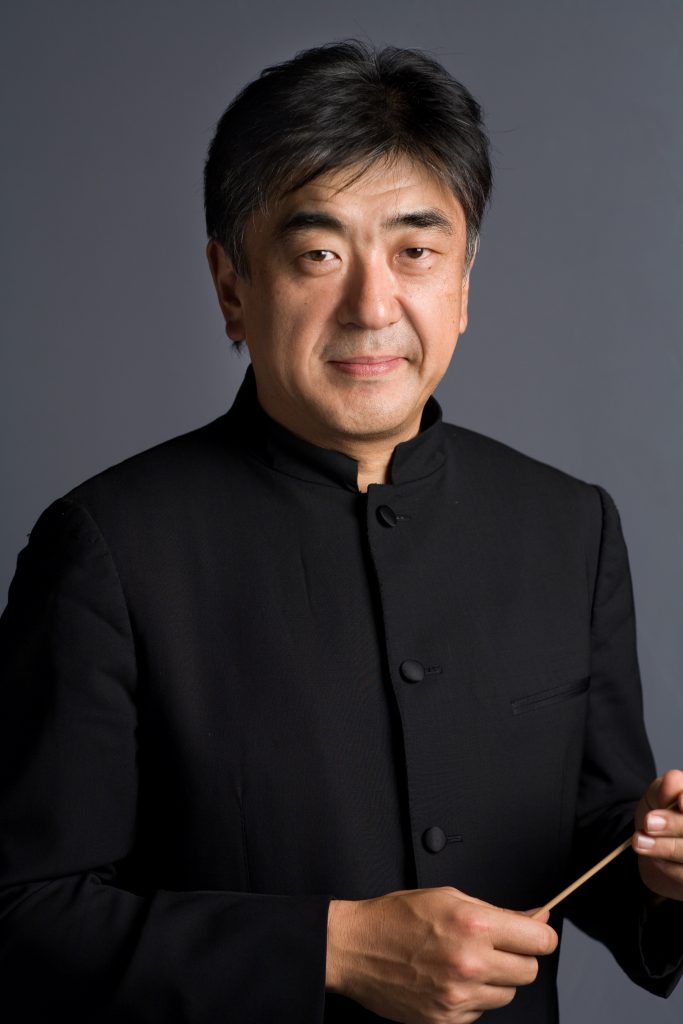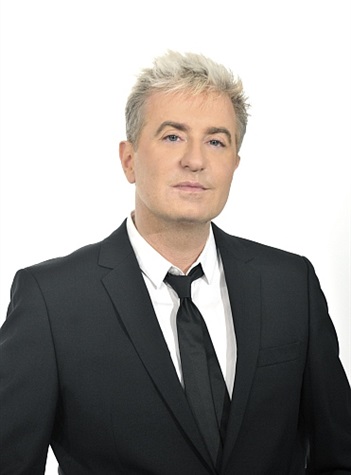Tchaikovsky fares best in conductor Sado’s U.S. debut with NSO

Yutaka Sado conducted the National Symphony Orchestra Thursday night at the Kennedy Center.
Yutaka Sado, currently principal conductor of the Tonkünstler-Orchester Niederösterreich, made his U.S. debut Thursday night with the National Symphony Orchestra. The program, consisting of two chestnuts, a Bernstein symphony, and a Tchaikovsky barn-burner, was hardly scintillating. The Japanese conductor’s penchant for explosive drama and speed, however, rocked the Kennedy Center Concert Hall.
The opening and closing pieces relied largely on the thrilling clatter of percussion. Sado went overboard eliciting the loudest sounds possible from the battery in the crisply drilled, martial opening of Rossini’s overture to La gazza ladra. The brisk tempi were at times at the edge of control, Sado always seeming to be just a hair ahead, which caused some minor confusion between sections of the orchestra. He is not one to keep the beat compulsively, often preferring to use his arms, head, or entire body to help the musicians shape the phrase.
At the end of the concert, for a performance of Ravel’s Boléro, Sado had the snare drum placed right near the podium, between the second violins and the cellos. The saxophone solos were tipped with bluesy wails, but some of the other solos in the woodwinds and brass seemed less secure. Although the fifteen-minute implacable crescendo produced the desired audience rapture, nothing about this plain-spun rendition felt different or new.
Nor did Sado, another conductor who claims the Bernstein mantle from his assistant days, manage to convince with that composer’s Symphony No. 2, titled “The Age of Anxiety” after the W. H. Auden dramatic poem. The opening clarinet duet, soft and introspective, set the scene, as four strangers drink in a New York City bar toward the end of World War II.

Jean-Yves Thibaudet. Photo: Eric Dahan
Jean-Yves Thibaudet, who also played the symphony’s prominent solo piano part with the Baltimore Symphony Orchestra in 2013, crept into the scene on the delicate opening of the solo piano part. He was mostly solid in the more virtuosic passages, often bristling with antagonistic barbs of dissonance, especially in the “Dirge,” which is mostly a solemn bore. Thibaudet seemed most at ease in the “dizzy-fingers” section of the Gershwin-esque “Masque,” navigating its metric irregularities with easy familiarity and a colorful sense of swing. Yet the work’s brilliant moments are outnumbered by less inspired dull stretches.
The triumphant “Epilogue,” situated somewhere between Mahlerian ecstasy and Broadway sentimentality, was the high point, capped by an intense cadenza from Thibaudet, shadowed by the orchestra’s principal keyboardist, Lambert Orkis. Sado’s conducting style even took a couple moves from Bernstein’s playbook, like a leg-splaying leap off the podium, timed to a big climax, and a double-fisted sword blow with the baton.
Tchaikovsky’s Francesca da Rimini turned out to be the evening’s surprise, the piece that benefited the most from Sado’s no-holds-barred approach. The plaintive cries of the damned souls of Dante’s Inferno, the howling whirlwind that carries the lustful through the dark air, and the forlorn clarinet melody of Francesca’s tale all came across vividly. Sado helped create a sense of high drama in this piece, lashing the violins as they sawed up and down on chromatic scales, making a buzzsaw of sound. When the violin section took over the doomed love theme, Sado brooked no wallowing in the soupy harmonies, hurrying through the final section of the score so quickly that one barely noticed its longueurs.
While the music was certainly exciting, those along the left aisle on the floor spent a good part of the middle part of the piece watching a particularly small and foolhardy mouse make its way up the incline, darting into various rows of seats. If only the Tchaikovsky on the program had been The Nutcracker instead.
The program will be repeated 8 p.m. Saturday. kennedy-center.org; 202-467-4600.
